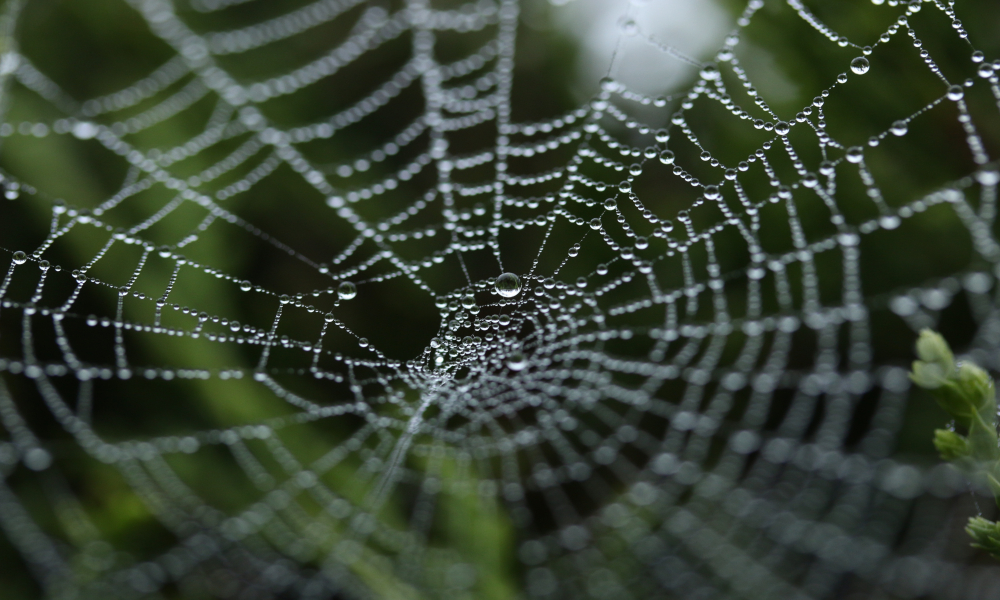How on earth does this idea make any sense at this difficult time? We think it might well do and this is how…
In Māori culture, there are a number of words for leader. One of the Māori words for a leader or chief is rangatira. The online Māori dictionary tells us:
‘A chief is a weaver of people. She is a leader. She is a starter and finisher of tasks and so the people follow her. She has the qualities of a leader in her concern for the integrity and prosperity of the people, the land, the language and other cultural treasures and an aggressive and sustained response to outside forces that may threaten these.’
In the current crisis, this may seem like an unusual way to talk about leaders. An odd way to describe how they can influence others. The idea of a leader being ‘a weaver of people’ resonates with us. We also believe a leader is a ‘weaver of stories’ – both a story-maker and a storyteller.
In complex times, there are few simple stories and the world as we know it is shifting in front of us right now. New ways of thinking and adapting are needed. The world is rife with fear. The constant stream of news is relentless and can if we are not careful, fuel anxiety. It is easy to feel overwhelmed and get ourselves lost in the maelstrom. Most of the stories are chilling and sobering.
Amongst all this though, some new stories are emerging – new ways of being and working are unfolding. Health workers and care workers and others are sacrificially serving our communities. Their quiet stories are spoken softly though actions and words – holding those who are suffering in their care. They are not the only ones. Everywhere people are finding new strategies to weave kindness and connection through the cracks of the all-pervasive crisis time.

Weavers and leaders
Leaders can play a crucial part in weaving people together through the clear, powerful, imaginative stories they tell. And through that, they foster ‘the integrity and prosperity of the people, the land, the language and other cultural treasures’ in their care. Particularly during times as unprecedented as these.
And leaders need to exercise ‘an aggressive and sustained response to outside forces that may threaten’ – whilst we might have chosen different words to use – resolute, determined, vigorous, the point is well-made.
COVID-19 requires us all to take ‘aggressive and sustained’ actions against its threat. COVID-19 is a threat. COVID-19 has come and disrupted our way of life – and we are all reeling from this. The implications are unknown and far-reaching. Staying at home is even part of our childrens’ everyday existence now.

Our old certainties have been taken from us. The routines of life we have built up and accrued through long, long years of habit have suddenly been taken, plucked from our grasp, and we are in shock.
We have lost ‘our world’ and not yet gained anything new, or, at least anything as certain as our old certainties. This is disorientating. This is more than disturbing. It may even be devastating to some. How then shall we live? How can we re-find who we are? How then shall we define ourselves? How then can we create ourselves without the trappings we so relied on and took for granted? How will the global economic system realign itself and rebalance the world for the future? Nobody can know…
Our leaders at this time, in particular, need to be able to firstly create – what we call story-making – credible, compelling narratives that bring us together, even when we are held apart by the threats we are exposed to. Through weaving, stories leaders can potentially bring people, teams, whole organisations, whole nations more together. Economist John Kenneth Galbraith’s observed:
‘All of the great leaders have one characteristic in common: it is a willingness to confront unequivocally the major anxiety of their people in their time. This, and not much else, is the essence of leadership.’ JK Galbraith, The Age of Uncertainty
At this point of huge uncertainty, we are looking for leaders who can do just this. In these tempestuous and uncertain times, even if our ‘weavership’ can only be expressed through Zoom, or Skype, or WhatsApp, or FaceTime or on the phone.

Who am I?
For some, this period of enforced ‘social distancing’, this time of familial isolation will prompt a significant review of priorities. If, for the most part, my identity has been sustained over the years through the lens of busy-ness – “I’m busy, therefore I am” – then having that busy-ness truncated opens new possibilities. When you are unduly tied up in what you do, it is easy to lose sight of who you are.
Psychologists tell us that grief takes time to work through. You can’t ‘accelerate’ the grieving process, you just have to live through it. Elisabeth Kübler-Ross, one of the Twentieth Century’s great ‘grief’ researchers noted though that:
‘The most beautiful people we have known are those who have known defeat, known suffering, known struggle, known loss, and have found their way out of the depths. These persons have an appreciation, a sensitivity, and an understanding of life that fills them with compassion, gentleness, and a deep loving concern. Beautiful people do not just happen.’
She also said: ‘People are like stained-glass windows. They sparkle and shine when the sun is out, but when the darkness sets in, their true beauty is revealed only if there is a light from within.’

Being ‘aggressive and sustained’ against the outside threats we face does not require us to become ‘aggressive’ to other people – resolute, determined, vigorous, yes. Those who serve us on the ‘front-line’ – our doctors, our nurses, our care-workers, our delivery people will be exercising this sustained resolution throughout this crisis. We need to be most grateful to them. Their courage and care shines through this darkness.
Staying home
Right now, for most of us, it requires us to step back and stay at home. Elisabeth Kübler-Ross says when we go through the loss we can, and often do emerge ‘fill[ed] … with compassion, gentleness, and a deep loving concern.’
In the words of the poet Kitty O’Meara our best response is to ‘stay at home’ and learn to lead differently:
And the people stayed at home.
And read books, and listened, and rested and exercised,
and made art, and played games,
and learned new ways of being, and were still.
And listened more deeply.
Some meditated, some prayed, some danced.
Some met their shadows…..
And when danger passed, and the people joined together again,
they grieved their losses, and made new choices,
and dreamed new images, and created new ways to live
and heal the earth fully, as they had been healed.

Kitty O’Meara caught our imagination with a new story. Her poem has woven hope virally throughout the world – capturing hearts and minds.
Tom Hanks, playing Walt Disney in the film Saving Mr Banks, the story of how Walt overcame PL Travers reluctance to let her book Mary Poppins be made into a film says,
‘That’s what storytellers do. We restore order with imagination. We instil hope again and again.’
Let’s discover the rangatira amongst us
Leadership in these times is still about being ‘a starter and finisher of tasks’. Those tasks leaders face now are complex, amorphous and full of many moving parts. They need wisdom in making big decisions and sometimes very tough decisions that are affecting many people. In such complexity, leaders do also have the opportunity to weave into the fabric of how they lead – new ways of connecting and serving others. The ‘tasks’ of leaders are many and varied, and in these times they need to draw upon their courage, the depths of their intellectual, emotional and even spiritual intelligence.
The call now is to discover the rangatira in ourselves and amongst us. Allowing ourselves to be the sharers and the beneficiaries of this kind of ‘weavership’ and connection. May this presence emerge in abundance and be felt around us all at this time.
About us
We are a team of highly experienced executive coaches, focused on developing leaders working in high-stakes environments across diverse sectors. We create space for leaders to step back, think clearly, and navigate complexity with confidence and renewed purpose. Our narrative-based approach blends deep listening, incisive questioning and rigorous thinking with a strong commercial focus.
“Our Knowledge Centre is designed to resource leadership practice and development. The articles we share on this site are intended to spark fresh thinking, offer practical tools, and support continuous professional growth.”
Jude Elliman
Founder
Our approach
We work with leaders to build their leadership brand and impact. Our approach includes:
✔ Challenge and support: creating time and space for rigorous thinking and problem-solving
✔ Narrative coaching: defining and refining the stories that shape leaders and organisations
✔ Commercial focus: cutting through complexity for strategies that inspire change and drive results
We help leaders make crucial decisions, align teams for greater effectiveness, and envision new possibilities for the future.
